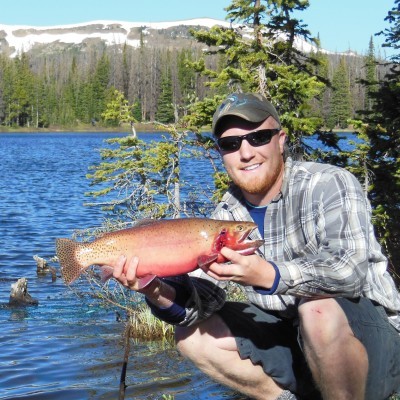
Steven Mattocks’ work involves establishing a timeline of anadromous fish spawning habitat lost due to the construction of dams. As dams began to appear across the New England landscape (as early as the 1620s), spawning habitat became inaccessible to anadromous fish (shad, river herring, and salmon). He hopes to calculate the total river and lake spawning habitat lost in major watersheds across New England. This will help determine the role of dams in the historical decline of the river herring fishery. Using productivity data from 2014 field work, he will then calculate the total number of potential river herring lost due to habitat fragmentation.
Mattocks also works closely with undergraduate students to document the diet habits of freshwater predators of river herring. Performing gut content analysis on these predators discloses food web interactions between native predators, non-native predators, and alewives. This will give managers a better understanding of freshwater systems where alewives are present, and suggest new management techniques to maximize river herring productivity. He is also collecting current and historical diet data of marine predators to establish a connection between the loss of river herring habitat and the decline of marine predators such as cod and striped bass. By linking river herring to marine predators, we can better understand the historical relationship between these two commercially important groups of species.